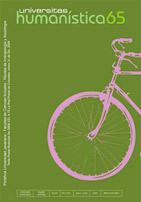Abstract
In this article, I propose to outline the stories of violence between men and women from the countryside and low-income neighborhoods in the cities, based on 33 interviews conducted in Bolivia in the summers of 2005 and 2006. I don’t consider «violence» as a universal concept, but rather as a combination of representations related to widely distributed practices within society. I will clearly point out the commonalities between men and women, on the one hand, and among inhabitants of the country and the city, on the other. One of the common characteristics of all is the perception of living in a dangerous world. Women place a considerably bigger emphasis on dangers of a supernatural kind, as well as damages cause by symbolic violence, such as «badmouthing.» The inhabitants of poor urban environments place more importance on delinquent violence, and take measures to confront it. Both sexes refer to gender violence within the family, but it is women who cite lived experiences to that respect. In terms of causes for the violence, in the city both sexes seem to be incorporating into their imagination elements of academic discourse about structural violence.
This journal provides immediate open access to its content on the principle that making research freely available to the public, encourages greater global exchange of knowledge.
The journal Universitas Humanística is registered under a Creative Commons Attribution 4.0 International Public License. Thus, this work may be reproduced, distributed, and publicly shared in digital format, as long as the names of the authors and Pontificia Universidad Javeriana are acknowledged. Others are allowed to quote, adapt, transform, auto-archive, republish, and create based on this material, for any purpose (even commercial ones), provided the authorship is duly acknowledged, a link to the original work is provided, and it is specified if changes have been made. Pontificia Universidad Javeriana does not hold the rights of published works and the authors are solely responsible for the contents of their works; they keep the moral, intellectual, privacy, and publicity rights.
Approving the intervention of the work (review, copy-editing, translation, layout) and the following outreach, are granted through an use license and not through an assignment of rights. This means the journal and Pontificia Universidad Javeriana cannot be held responsible for any ethical malpractice by the authors. As a consequence of the protection granted by the use license, the journal is not required to publish recantations or modify information already published, unless the errata stems from the editorial management process. Publishing contents in this journal does not generate royalties for contributors.


